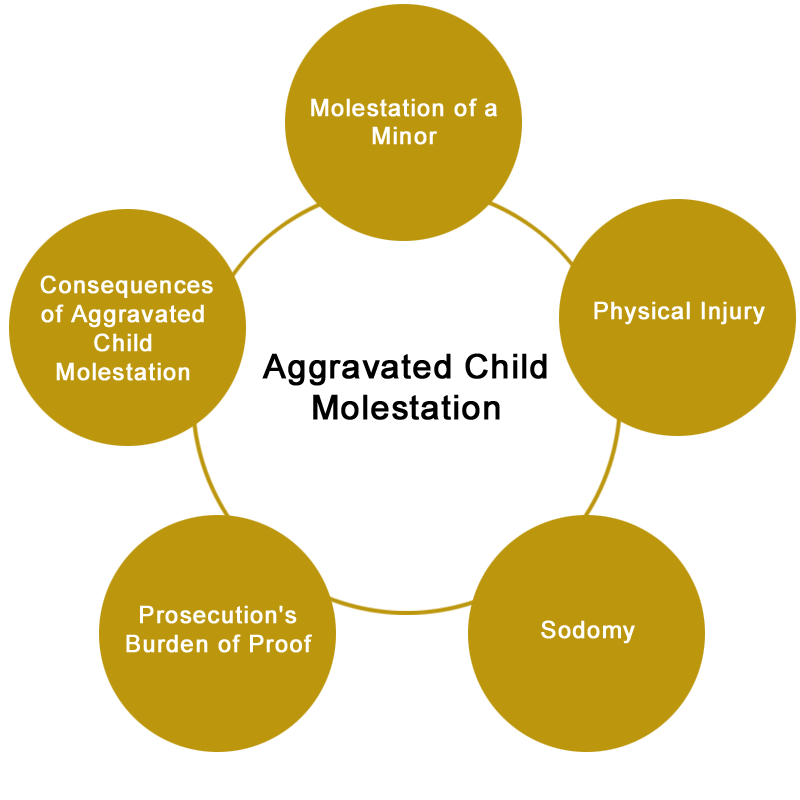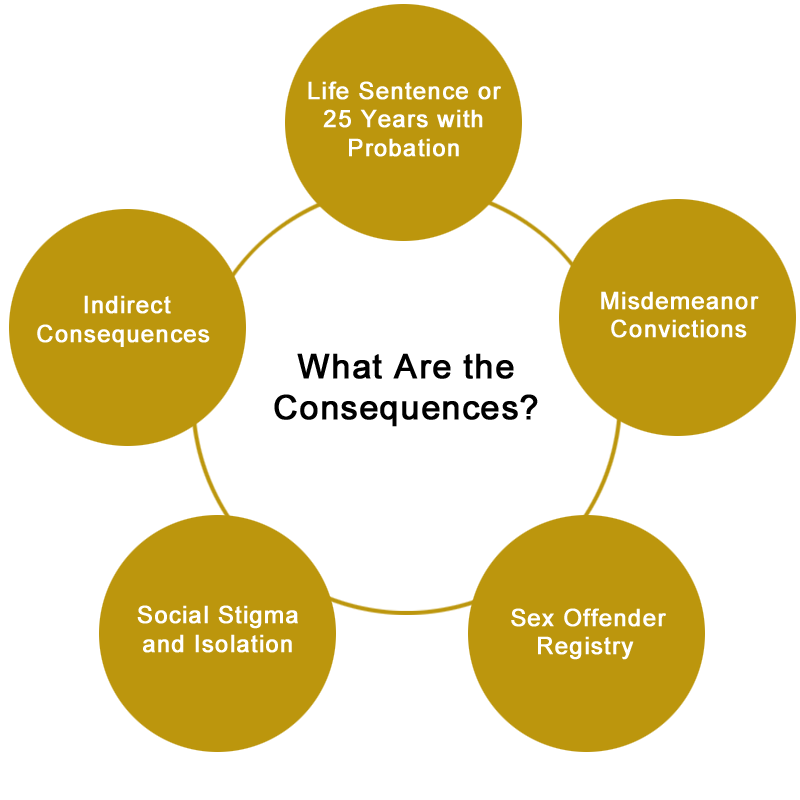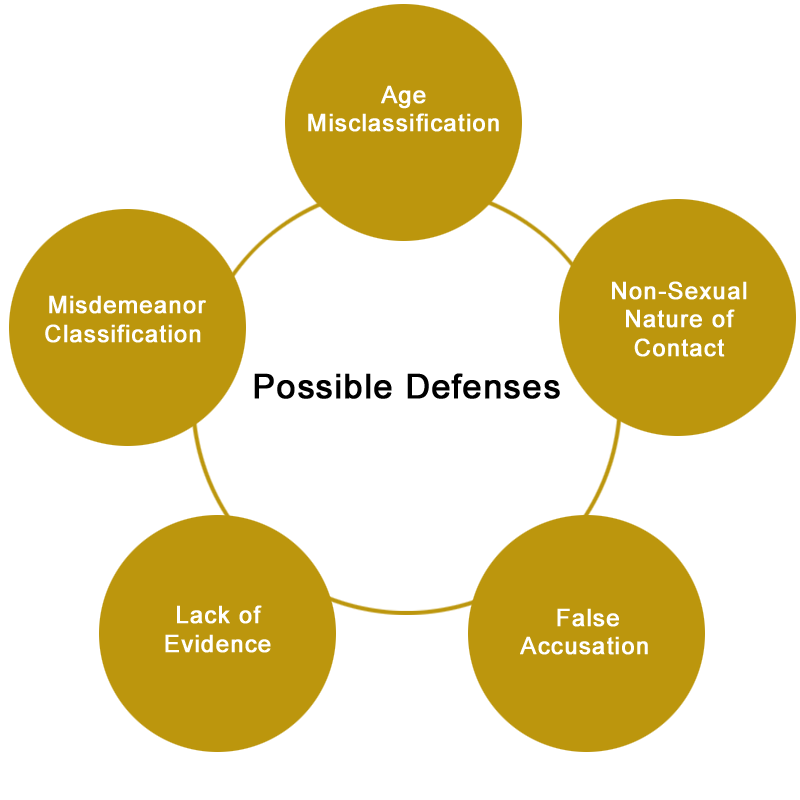 A more serious set of charges than base child molestation, aggravated child molestation is defined under Georgia Code § 16-6-4 as “an offense of child molestation which … physically injures the child or involves an act of sodomy.” Through this legal definition, we can determine the factors which elevate child molestation to aggravated child molestation. These include:
A more serious set of charges than base child molestation, aggravated child molestation is defined under Georgia Code § 16-6-4 as “an offense of child molestation which … physically injures the child or involves an act of sodomy.” Through this legal definition, we can determine the factors which elevate child molestation to aggravated child molestation. These include:
Molestation of a Minor: Constituting child molestation, this occurs when an adult commits an indecent act with sexual intentions, either to a person under 16 years of age or in their presence.
Physical Injury: No matter how minor an injury it may be, any damage to the child in question could lead to aggravated child molestation charges.
Sodomy: Narrowly defined under the law, sodomy is simply any act that involves penetration of the mouth or anus during the act of molestation.
To secure a conviction for aggravated child molestation, the State of Georgia’s prosecution most demonstrate the presence of these three factors to determine guilt beyond a reasonable doubt.
 Consequences for an Aggravated Child Molestation Conviction in Georgia
Consequences for an Aggravated Child Molestation Conviction in Georgia
As a felony conviction, aggravated child molestation can carry either a life sentence in prison or a split sentence of 25 years followed by lifelong probation. That said, there are factors that can lead to a misdemeanor conviction of aggravated child molestation. For example, if the victim is between 13-16 years old or if the perpetrator is no more than four years older than their victim. If the basis of the charge involves an act of sodomy, it can also be prosecuted as a misdemeanor.
Conviction will also result in the perpetrator being placed on the sex offender registry. As a means of deterring future crimes and enforcing public safety, this registry gives law enforcement extra means of following and supervising convicted child molesters while providing the public with information on those convicted.
Beyond the legal consequences, there are far-ranging indirect consequences that come from a conviction of aggravated child molestation. On a large scale, it can lead to social stigma and isolation that can worsen mental health issues such as a depression. Financial implication from a conviction can include a decreased ability to secure employment or secure a loan, which can impact family members. And as a felon, those convicted can possibly lose civil rights such as voting and owning firearms.
 Possible Defenses Against Aggravated Child Molestation Charges
Possible Defenses Against Aggravated Child Molestation Charges
Being charged with aggravated child molestation is not the same as being convicted. The onus falls on the prosecution to prove their case beyond a reasonable doubt, but a vigorous defense is still needed to ensure that justice is served. A few strategies include:
Age: That the alleged victim was not within the specified age range to constitute child molestation, leading to misclassified charges.
Nature of Contact: That the contact itself was not sexual in nature, or was misconstrued.
False or unsubstantiated Accusation: That the allegations made against the defendant were baseless or not grounded in fact.
A successful defense on any of these criteria can help charges be classified as a misdemeanor vs. a felony.
You Deserve a Chance to Defend Yourself
Aggravated child molestation is a serious crime, and one that deserves an equally serious defense. A conviction of a sex crime has massive, long-lasting ramifications and you might feel helpless if facing these charges. But with the right attorney at your side, you can prove your innocence. Our attorneys pride themselves on crafting a vigorous defense from a foundation of thorough research. When you hire us to defend you, we will track down every lead, no matter how miniscule, to help you fight these charges. There is always hope, and there are always options. Contact us today for a free, no-obligation evaluation of your case today.
